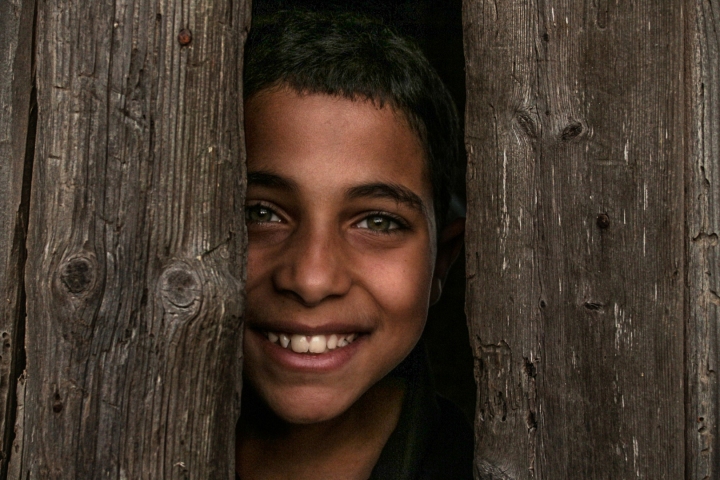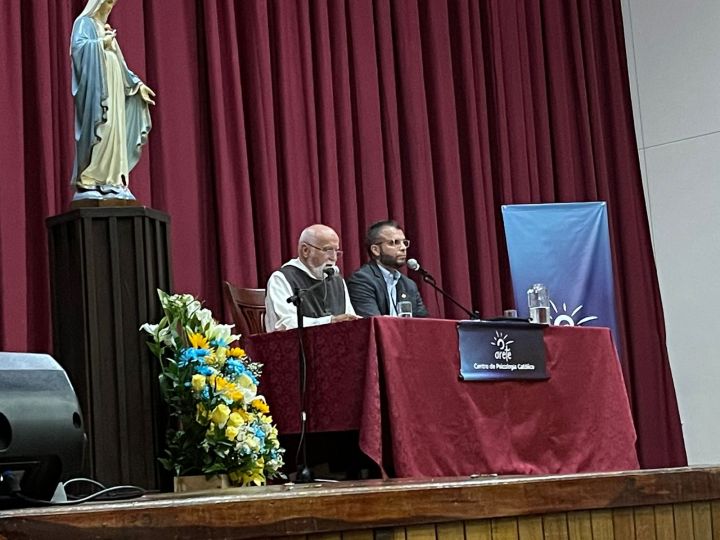The father Jacques PhilippeHe is one of the best-known spiritual authors in recent years.
He has recently dedicated himself to preaching retreats in France and abroad and has consolidated his main themes in some books on spirituality such as Inner freedom, Happiness where it is not expected, Called to life, Inner peaceY In the school of the Holy Spirit, among others.
On October 20, he offered a conference, organized by Earring (Integral development center of the person), in the city of Medellin, Colombia.
Father Jacques spoke about the personal acceptance and the inner freedom. Here is a summary of 3 points on this important topic in our lives:
1Authentic inner freedom presupposes reconciliation with ourselves

M. Farouk | Shutterstock
Is about welcome us as we are, with our grace, our beauty, our abilities; but also with the part of fragility and poverty that is in us.
Sometimes it is difficult to accept aspects such as our physique, our weaknesses or our history. We find it hard to love ourselves. We find it hard to forgive ourselves.

«The history of salvation is fulfilled by believing «against all hope» (Rom 4,18) through our weaknesses. Many times we think that God is based only on the good and winning part of us, when in fact most of his designs are carried out through and despite our weakness.
This is what makes Saint Paul say: So that I don’t get excited, I have a thorn stuck in my body, an emissary of Satan who beats me so that I don’t get excited. Three times I have asked the Lord to take her away from me, and he has told me: My grace is enough for you, because my power is fully manifested in weakness» (2 Cor 12,7-9).
If this is the perspective of the economy of salvation, we must learn to accept our weakness with intense tenderness.
The Evil One makes us look at our fragility with a negative judgment, while the Spirit brings it to light with tenderness. Tenderness is the best way to touch what is fragile in us.
The pointing finger and the judgment we make of others are often a sign of our inability to accept our own weakness, our own fragility. Only tenderness will save us from the work of the Accuser (Rev 12,10).
For this reason it is important to encounter the Mercy of God, especially in the sacrament of Reconciliation, having an experience of truth and tenderness. Paradoxically, even the Evil One can tell us the truth, but if he does, it is to condemn us.
We know, however, that the Truth that comes from God does not condemn us, but welcomes us, embraces us, sustains us, forgives us.
The Truth always appears to us as the merciful Father of the parable (cf. Lk 15:11-32): he comes to meet us, restores our dignity, puts us back on our feet, celebrates with us, because “my son was dead and has come to life, he was lost and has been found”” (v. 24) (Patrick Corde. Pope Francisco).
At the base of what happens to us is our distrust in the mercy of God.
We think that God wants us to be perfect, but the truth is that He carries out His designs through our weakness.
God is a Father who forgives and welcomes, never judges us. He sometimes he makes us remain in fragilitykeep our thorns, to free us from pride and give us his grace that strengthens us.
twoThe source of authenticity is the connection with God
Without this reconciliation with ourselves, we will always be in a certain inner conflict and it will be difficult for us to love others and welcome God’s love.
By losing our connection with God we lose the ability to see ourselves with a reconciled look.
We can only accept ourselves when we know the infinite love that God has for us:«You are my beloved son, I have put all my love in you».
Our deepest identity comes from the love of God who has created us. This implies receiving the love that God gives us.
The person God loves is the person I am, not the person I dream of being or the person I should be.
If I welcome myself, I welcome the love of God and this love is what heals me and heals all my wounds.
when i feel fully welcomed by the other, and especially by God, when I recognize myself infinitely loved by the Father, when I feel forgiven for my failures, I am able to move forward.
When we separate ourselves from God, sooner or later, we will end up hating ourselves, because we lose the essential reason we have for loving each other: confidence in our identity as children of God.
Confidence in God’s mercy and love is the key to our acceptance.
3Trust in God is the path to our inner freedom

Trust in God is the foundation of all other forms of trust. that we have to put into practice: trust in ourselves, trust in others, trust in the future, etc.
In the current context we feel that this trust is missing in many people.
The most beautiful testimony that Christians can give is not that of being better than others, but that of our trust in God’s love.

The Curé d’Ars said: «The good Lord has shown me this great mercy, that of not being able to do anything in me on which I can stand, no talents, no science, no wisdom, no strength, no virtue«. This forced him to lean more on God and put more of his trust in Him.
This purifies our love, because the person who is aware of his fragility, loves with a purer love, because there is less personal satisfaction; then I love God and others more.
What God wants is not for us to be perfect, but for us to trust Him.


